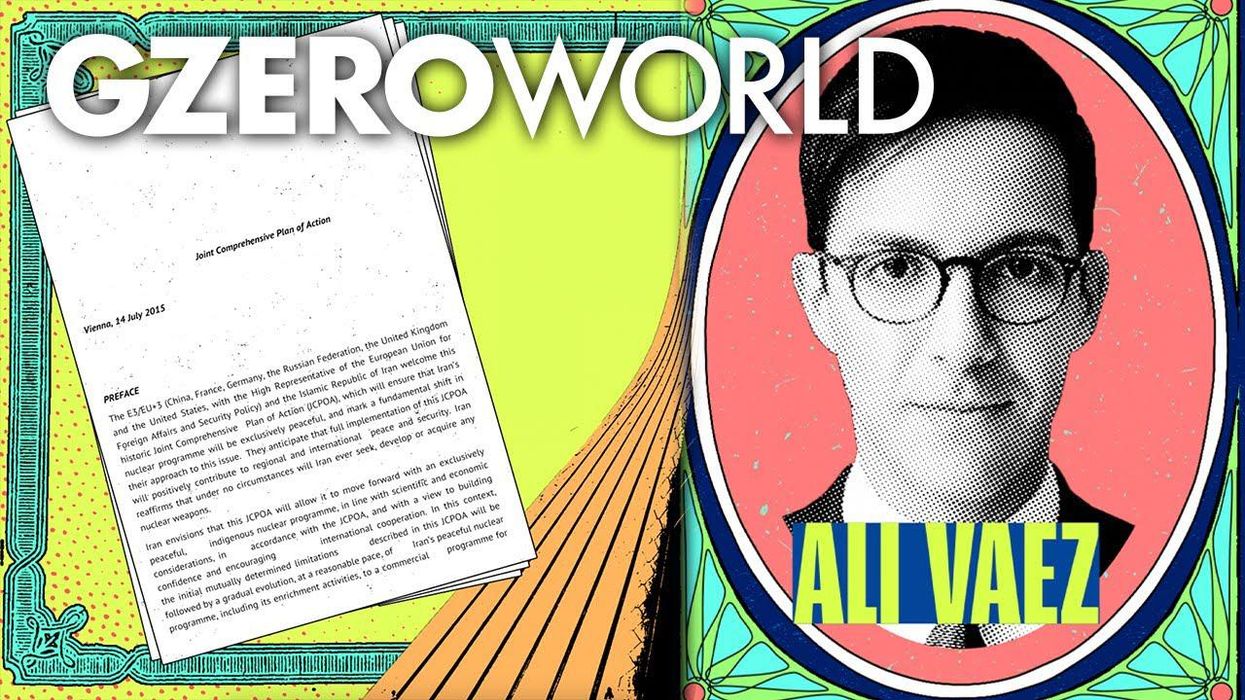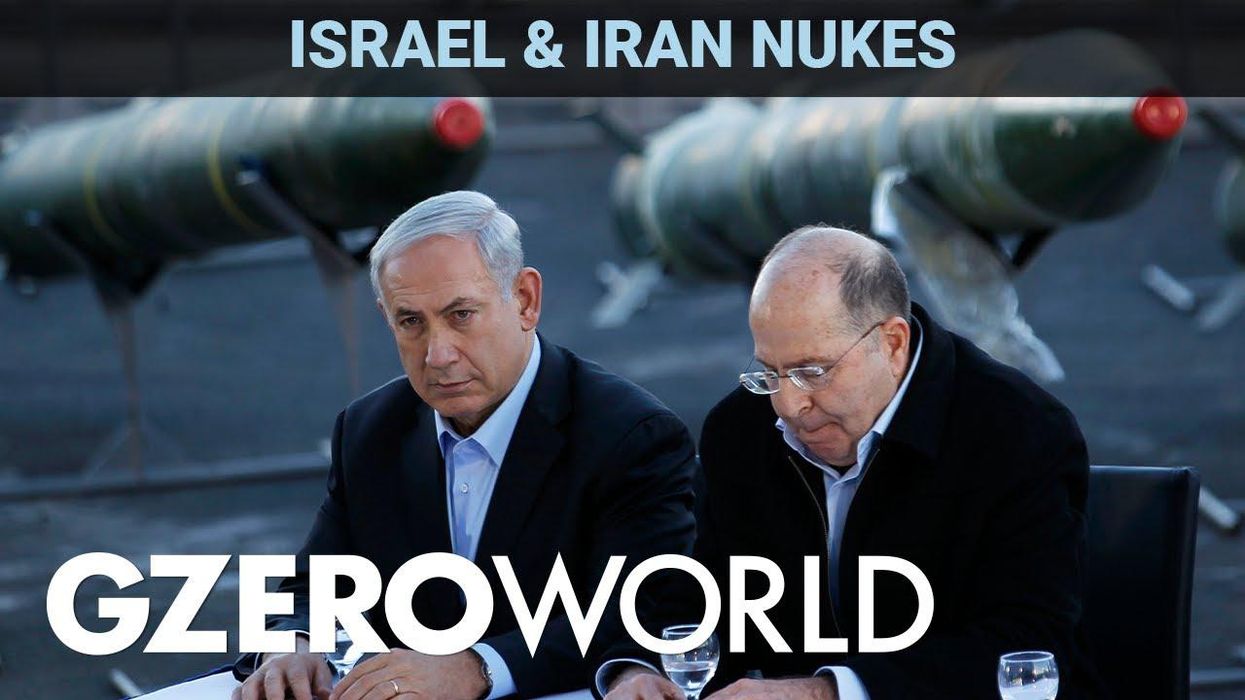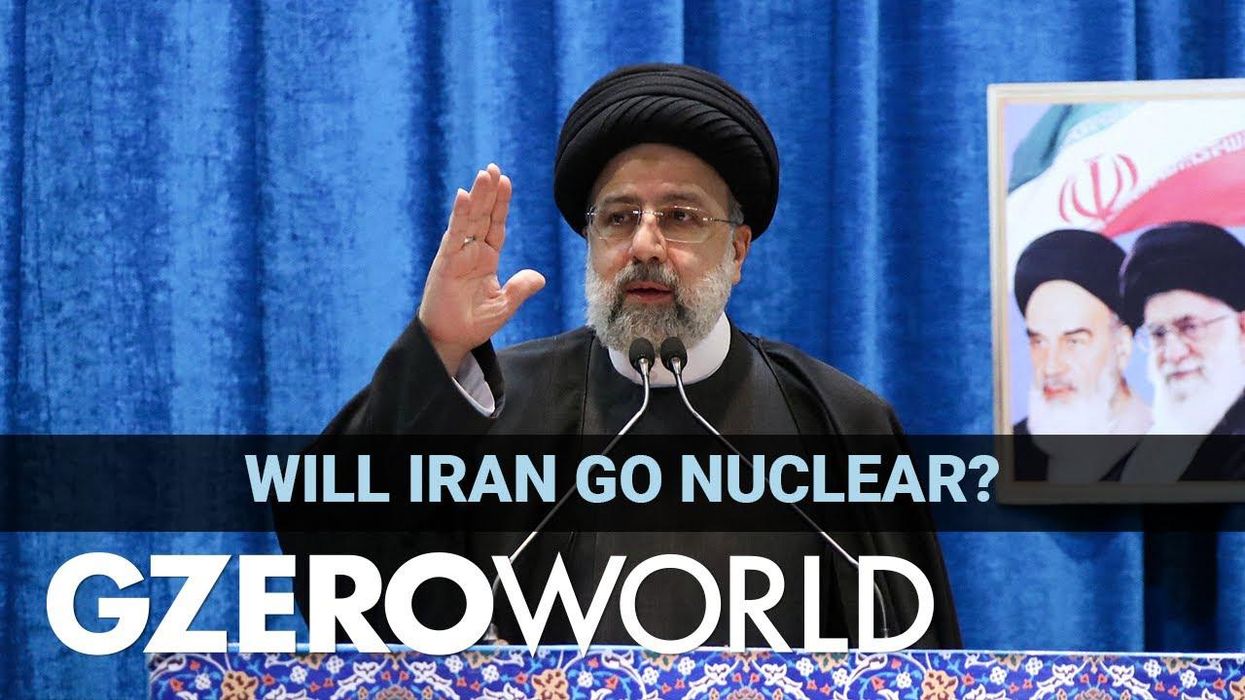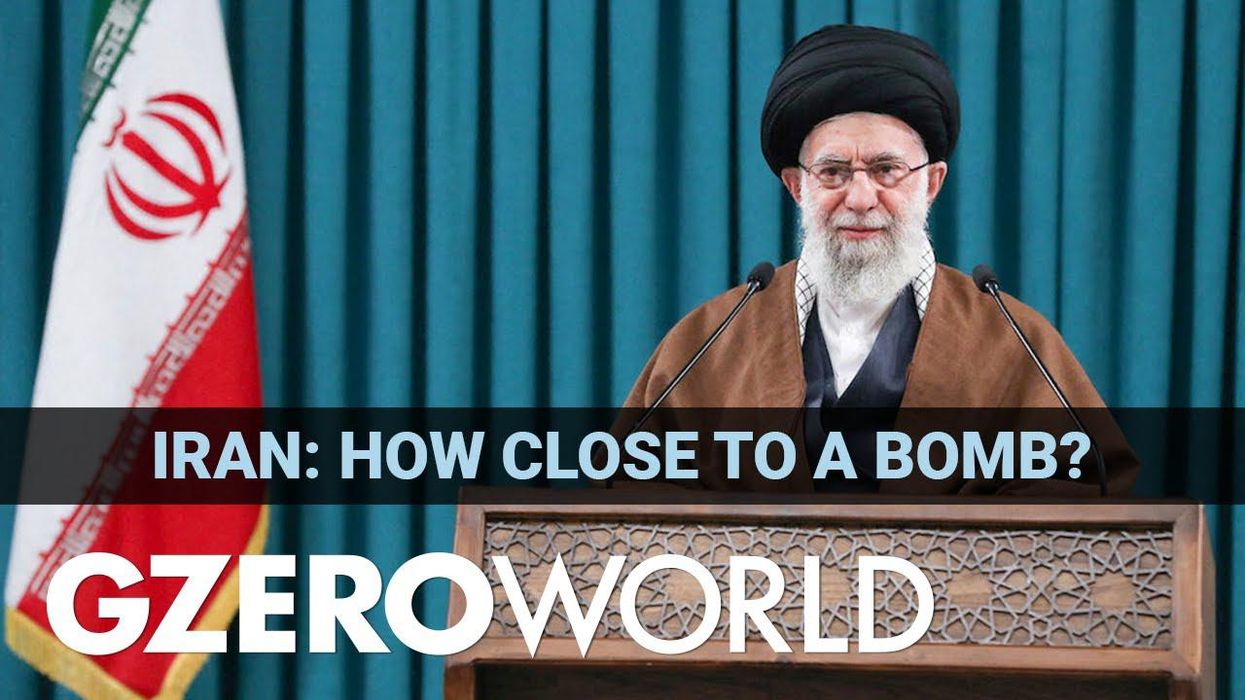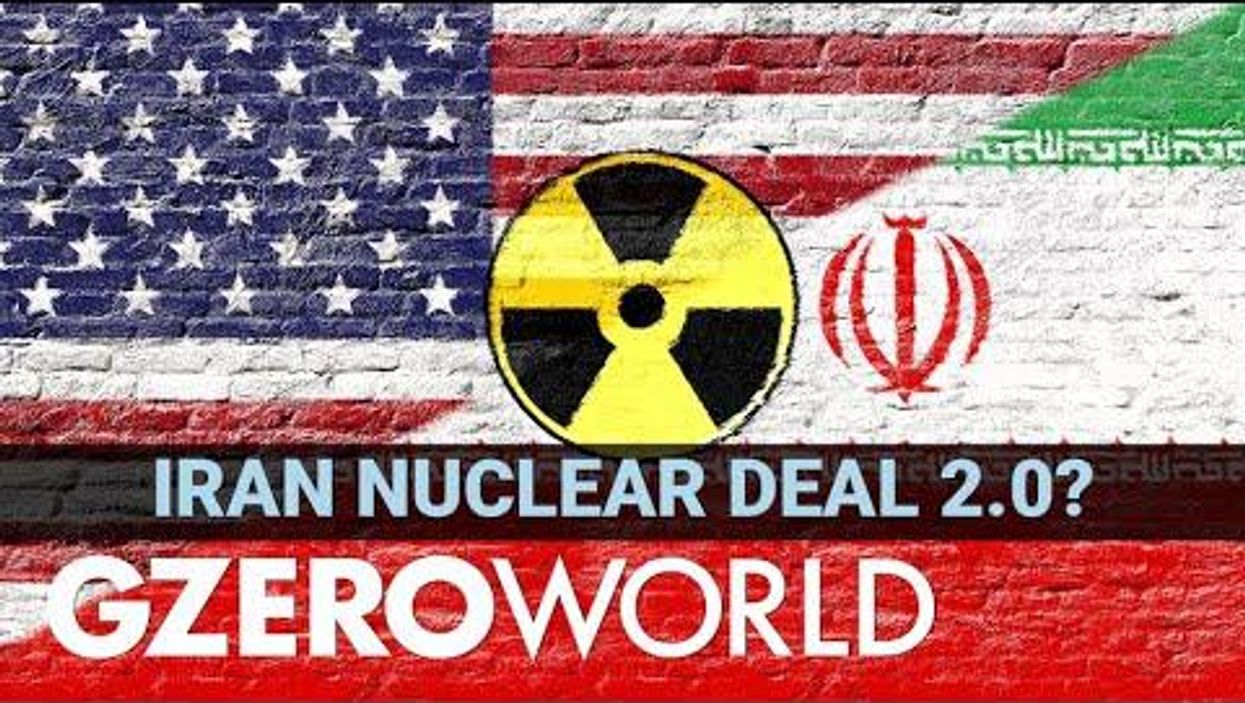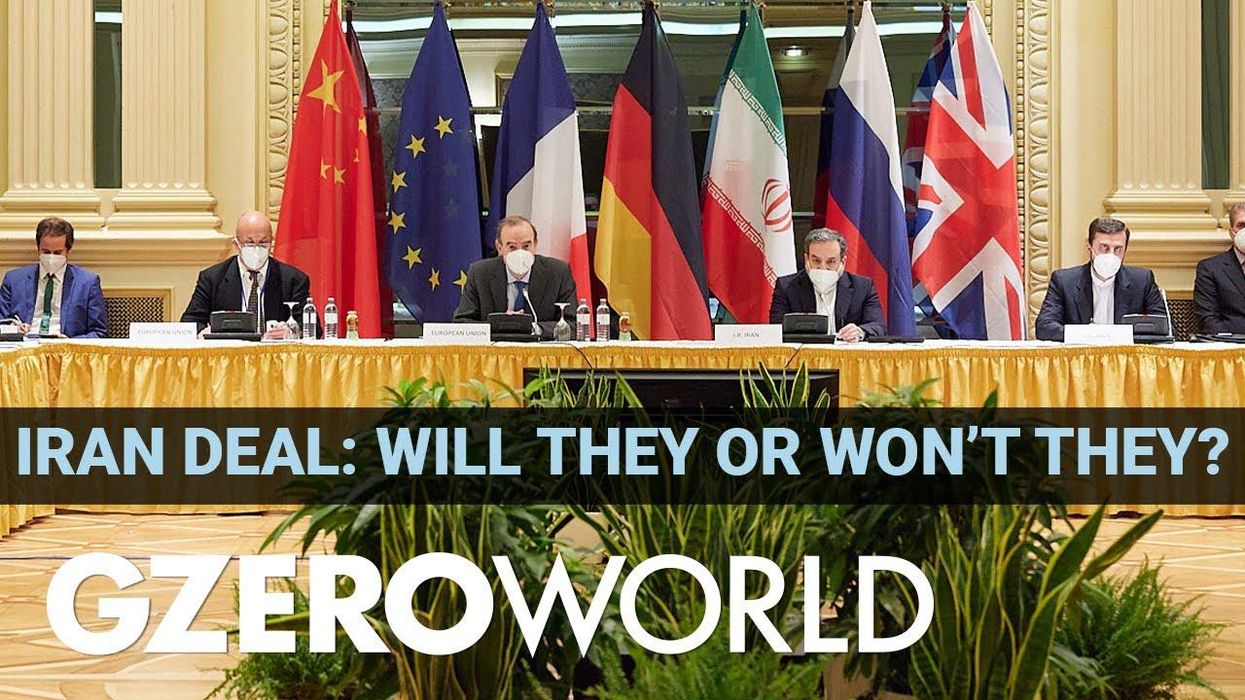GZERO World Clips
A new Iran nuclear deal is critical but not a sure thing, says Iran expert Ali Vaez
The Biden administration has worked hard for the US to return to the 2015 Iran nuclear deal, which former President Trump walked away from in 2018. On GZERO World, Ian Bremmer speaks to Ali Vaez, Iran project director at the International Crisis Group, who says the odds of renewing the deal in the short term are about 50/50.
Apr 10, 2022
